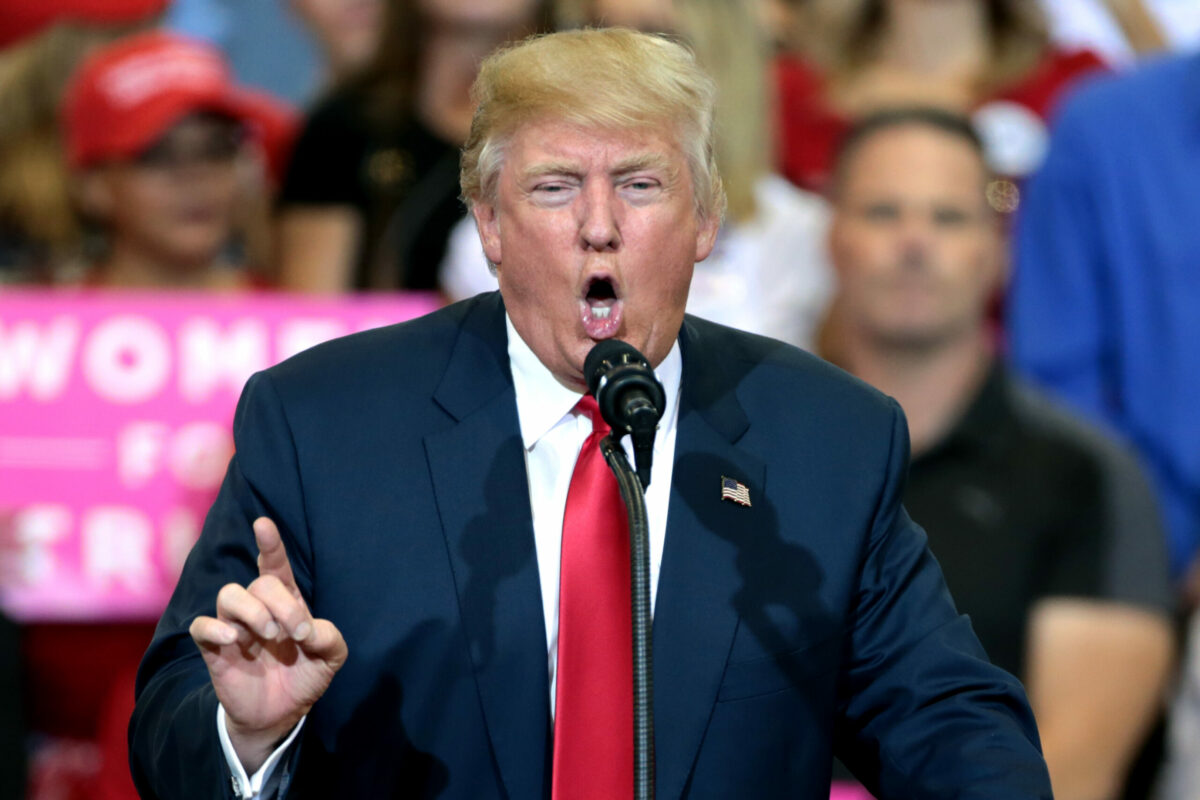The percentage of people with favorable views of the United States has increased in at least a dozen countries since former President Donald Trump left office, according to a new poll released Tuesday.
“President Joe Biden inherited a tarnished American image abroad when he took office on Jan. 20 following four years of President Donald Trump’s ‘America First’ foreign policies and the Jan. 6 Capitol riot that called into question the status of the world’s oldest continuous democracy,” noted Morning Consult, which conducted the survey tracking international sentiment.
“Nearly 100 days later as the United States and the world meets a symbolic milestone of Biden’s presidency, the Oval Office’s current occupant is overseeing a sizable improvement to the American brand across many allied countries,” the pollsters added.
According to the latest surveys of adults in 14 other nations, favorable views of the U.S. have increased by an average of nine points in the wake of Trump’s departure from the White House.
U.S. popularity has improved the most in Germany, where there has been a 47-point net gain in favorability following Biden’s inauguration. Since Jan. 20, the percentage of Germans with a favorable view of the U.S. has increased from 24% to 46%, a 22-point swing. Meanwhile, 37% of Germans now hold an unfavorable view of the U.S., down 25 points from the pre-Biden mark of 62%.
Similar positive changes in foreign countries’ perceptions of the U.S. have been observed in Japan (+39), France (+37), Canada (+32), and the United Kingdom (+30), with smaller gains seen in Spain (+26), Italy (+23), Australia (+21), Mexico (+15), Brazil (+10), and Russia (+6).
Christian Welzel, a political researcher at the Center for the Study of Democracy at Leuphana University Lüneburg in Germany, attributed the boost in U.S. popularity to Biden’s return to the Paris climate agreement, even if, as progressives have pointed out, the U.S. president’s climate pledges are inadequate in light of the country’s historic responsibility for the climate emergency.
South Korea’s opinions about the U.S. have declined slightly in the Biden era, with the favorability rating of 47% remaining steady but unfavorability growing from 37% to 39%.
The largest decrease in U.S. popularity has occurred in China, which is perhaps unsurprising given Biden’s embrace of what some have called a new Cold War designed to contain China’s growing economic and military power. Before Biden’s inauguration, 21% of people in China held a favorable view of the U.S. and 65% held an unfavorable view. Since Jan. 20, favorability has shrunk to 17% while unfavorability has risen to 74%.
Notably, not a single African country was surveyed, even though people living there might have interesting things to say about a Biden administration whose stances on global public health policy and refugee admissions—which progressive critics have dubbed “America First Lite”—directly impact them.
So far, only 1.3% of Africa’s 1.3 billion people has been inoculated against Covid-19. Current projections suggest that most people living on the continent, as well as the residents of impoverished countries in Latin America and Asia, won’t receive shots until 2023 at the earliest, which is why nearly every country in the Global South supports a proposal at the World Trade Organization to suspend vaccine patents for the duration of the pandemic.
Last week, a representative from South Africa criticized rich countries, including the U.S., for siding with Big Pharma in their quest to use intellectual property rights to maintain their profitable monopoly control over vaccine production—no matter how many human beings die as a result of an artificially low supply of doses.
Although wealthy nations’ obstruction of the motion for a vaccine patent waiver is deadly, not every country victimized by the U.S.-led opposition to the proposal seems to have taken it out on Biden.
A large majority of people in India—which co-introduced the patent waiver proposal last October and is now in the midst of a hellish Covid-19 outbreak—still view the U.S. in a positive light despite Washington’s steadfast commitment to a privatized intellectual property regime.
Since Jan. 20, the percentage of people in India who hold a favorable view of the U.S. increased from 77% to 79%, while the percentage with an unfavorable view has declined from 11% to 10%.
In fact, India is the only country surveyed that has a higher opinion of the U.S. than Americans themselves. Seventy-eight percent of people in the U.S. now hold a positive view of their country, up from 73% before Biden’s inauguration. Meanwhile, the national unfavorability rating has decreased from 22% to 17% since Jan. 20.
“International opinion of the United States, in many nations, is genuinely contingent on American actions,” said David Farber, a historian at the University of Kansas. “People in many nations around the world are, I think, hopeful, that the election of Joe Biden marks a rejection of Trump’s ‘America First’ bullying and go-it-alone international policies and a return to a more collaborative, pro-democracy approach to international affairs.”
This article first appeared at Common Dreams and is reprinted under a Creative Commons license.
